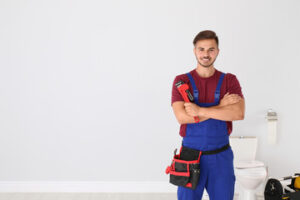Aurora CO Trenchless Sewer Repair is an innovative approach to restoring your sewer lines that eliminates the need for extensive digging. This process taps into an existing plumbing cleanout and small access points, preserving landscaping, driveways, sidewalks, and patios.
Pipe lining addresses problems such as cracks and root intrusion by sealing off the openings with an epoxy resin that hardens. It can also be used to increase the lifespan of your existing pipes.

Pipe lining is one of the most popular trenchless sewer repair techniques. It involves coating the inside of existing pipes with a durable epoxy resin. The resulting liner is as strong as, if not stronger than, the original pipe itself. It’s an ideal solution for problems like cracks, holes, and general wear and tear that can cause sewage to leak or back up into your home or business.
To get the job done, technicians will first hydro and/or mechanically clean your existing sewer lines. This step is essential to ensure the liner adheres properly and seals effectively. It also helps to prevent clog points and weak spots that could become future problems.
Next, a flexible tube coated in the epoxy resin gets inserted into your sewer line. A rubber bladder inside the liner is inflated to push the resin against the walls of the pipe. The epoxy is then hardened using heat or ultraviolet light. The result is a seamless, watertight liner that’s as strong as, if not stronger than, your original pipe.
While liners are an excellent trenchless solution for many pipe problems, they’re not appropriate for every situation. If your line is too damaged or has a problem like sagging, bellying, or improper slope, it’ll require more intensive repair work. It’s also important to note that liners don’t fix root intrusion or other structural issues.
Before lining, you’ll need to have a camera inspection performed to determine the extent of your damage. This will help you understand the results of your upcoming trenchless repair and what kind of maintenance you may need to perform in the future. It’s also a good idea to ask for a copy of the video inspection so you can be aware of any issues or concerns that come up during the repair process. This transparency can help you make smart decisions about your pipe repair needs and minimize the impact on your property. It can also help you save money by catching minor repairs before they turn into costly excavation projects down the road.
Pipe Bursting
Pipe bursting is a trenchless method of replacing existing sanitary sewer lines or water lines. It involves mechanically pulling a new, same-size or larger pipe through the old pipe, bursting it apart and shifting it into the space that it occupied. The new pipe then takes over and is heat welded above ground to ensure no breaks or tree roots cause future problems. It’s a great option for homeowners or businesses with damaged or corroded pipes that need to be replaced.
When compared to traditional excavation, this process is much more efficient, quieter and less costly. It can save you thousands of dollars and a lot of lost time by avoiding the need to dig large holes on your property. It is also an excellent choice for those who want to keep their landscaping intact or who have a limited budget for the repair.
This method can be used to replace pipes in both residential and commercial properties, regardless of the material they are made from. It is most often used to replace corroded or broken concrete, cast iron and clay pipes. It can also be used to replace aging PVC, CPVC and ABS pipes.
Unlike CIPP lining, pipe bursting provides you with an entirely new sewer pipe that’s designed to last for decades. It also doesn’t require any resin-soaked fiberglass sleeves and can be used to fix leaks or cracks in existing pipes.
Another benefit of this trenchless technique is that it doesn’t disrupt traffic or residential and commercial services. However, it is important to note that a temporary bypass line may need to be set up during the repair or replacement process.
While CIPP lining is cheaper and requires less digging, it doesn’t offer the same level of durability or strength as a brand new pipe. It’s also not a permanent solution and is likely to develop its own leaks within the next few years. For those with serious issues in their home or business, a brand-new pipe is a better option and can be more cost effective in the long run.
Pipe Casting
A sewer line that is damaged or has broken can cause sewage to seep into your property, causing extensive and expensive damage. Traditional trenching methods involve tearing up yards and gardens, but trenchless sewer line repair offers a less destructive way to fix this problem.
Trenchless sewer line repair uses specialized equipment to restore old pipes without digging large, unsightly holes on your property. This method is also faster and more affordable than conventional excavation. Plus, it leaves a smaller footprint on your landscaping and hardscaping, preserving these areas for future use.
With this process, a plumbing crew will first hydro or mechanically clean your clogged or damaged sewer lines. Then, they will dig two small access points on either side of your faulty pipe. The plumbing crew will then send a specialized tool with a winch to the damaged area of your line. This tool has a cutting head that breaks up and destroys the old pipe while pulling a new one behind it, effectively replacing the damaged pipe.
The resulting liner will be smooth and durable, free from any leaks, cracks, and other issues that the old pipe had. It will be a good fit for your pipe’s diameter and can last up to 50 years.
Another popular trenchless repair option is slip lining. With this technique, the plumber will insert a soft and flexible liner into your existing sewer pipe, covering it in a durable epoxy that creates a watertight seal. This type of repair is perfect for fixing leaking joints or repairing cracks in your line.
It’s important to remember that this method only fixes problems with the piping itself and does not address issues like poor structural design or routing. However, it’s a great alternative to traditional excavation and pipe replacement and will still provide many benefits for your home or business.
If your home or business has a faulty or failing sewer line, it’s important to contact your local plumbing expert immediately. They can use trenchless methods to repair or replace your pipes, saving you thousands of dollars and hours of disrupted time and preventing further damages to your property.
Inspection
Trenchless sewer repair involves inserting a new liner or pipe into the existing one to correct damaged areas without extensive digging. It’s an alternative to traditional repair methods, and offers a number of benefits including minimal disruption, speed, long term cost savings, and enhanced durability. However, determining whether trenchless repair is the right option for your needs depends on the extent of damage and the advice of a professional plumber.
One of the most common trenchless repair techniques is cured-in-place pipe (CIPP). In this method, a flexible liner coated with epoxy resin is inserted into your existing pipes. The resin then hardens to create a new, durable pipe within your old one, sealing any holes or cracks. Your plumbing technician can also use this process to fix problems like root intrusions.
To perform a CIPP repair, your plumbing technician needs to first analyze the condition of your sewer line with a camera inspection. The camera will give them a clear view of the length and location of the damage in your sewer line. They’ll also be able to see if any additional issues need to be addressed.
After the inspection, your plumber will hydro or mechanically clean your sewer lines to ensure they’re free of debris that could interfere with the lining process. A clean liner will also help the epoxy resin adhere better to the walls of your existing pipe, resulting in a stronger and longer-lasting repair.
Once the liner is in place, your plumber will cut two access points on either end of your sewer line at the points where the lining material was inserted. They’ll then send a specialized tool down both of these access points to cut the liner into place and make sure it’s secure. Once they’re done, they’ll inflate the liner with air and hot steam to adhere it to the interior surface of your sewer pipe.
Trenchless pipe repair is an excellent solution for homeowners with sewer line problems. It allows your plumbing technician to quickly locate and repair a damaged section of your sewer line with minimal impact on your property and surrounding environment. It also helps minimize the potential for future problems, such as sewage backups and expensive property restoration costs.


